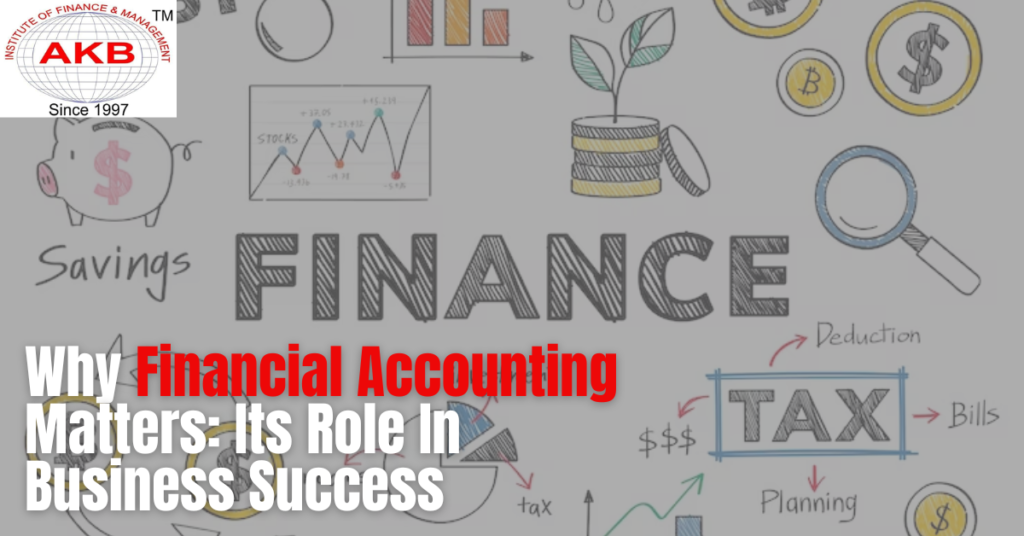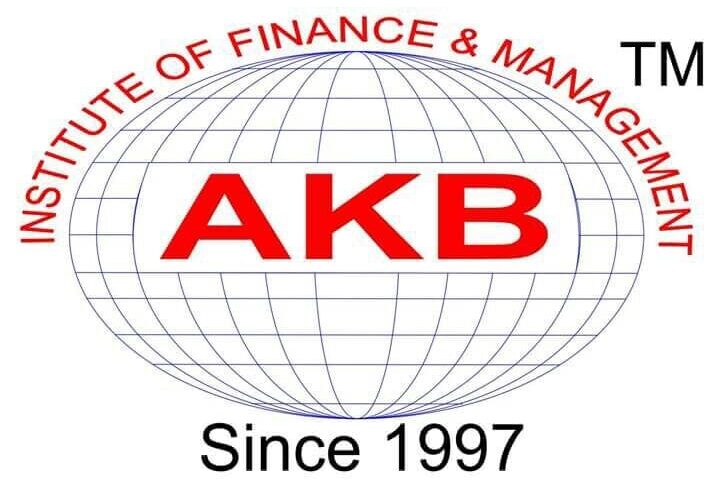
In the dynamic business landscape, success hinges on many factors, and one crucial aspect that often takes centre stage is financial accounting. Sound financial accounting practices must be considered from startups to multinational corporations. In this blog, we will delve into why financial accounting matters and how it plays a pivotal role in achieving business success. If you’re considering enhancing your Financial Accounting Skills, we’ll also explore the options for the best financial accounting courses in Gochi.
1. Tracking Financial Performance
At its core, financial accounting is about tracking a company’s economic performance. It involves recording, summarizing, and presenting financial information to show how a business is doing financially clearly. This aspect is crucial for both internal and external stakeholders.
Internal stakeholders like business owners and managers rely on financial statements to assess the company’s performance over time. It helps in identifying areas that need improvement and making informed decisions.
External stakeholders such as investors, creditors, and regulatory bodies use financial statements to evaluate a company’s creditworthiness, investment potential, and compliance with financial regulations.
Without accurate financial accounting, a company is flying blind, unable to measure its progress or make informed decisions.
2. Facilitating Strategic Planning
Strategic planning is like a map that helps a business find its way to success. Financial accounting is central to this process by providing historical data and financial projections. This information helps business leaders make informed decisions about the future.
Budgeting and Forecasting: Financial statements, historical data, and trends assist in creating realistic budgets and forecasts. These documents are essential for setting targets and evaluating performance against them.
Resource Allocation: Financial data guides the allocation of resources. It helps determine where investments are needed, whether in expanding operations, launching new products, or cutting costs.
Risk Assessment: Financial accounting identifies financial risks early on. Businesses can mitigate risks and adapt their strategies by analysing financial ratios and trends.
3. Evaluating Profitability And Efficiency
Profitability is the lifeblood of any business. With profits, sustainability becomes easier. Financial accounting measures a company’s profitability through various financial statements and ratios:
Income Statement: This statement shows revenue, expenses, and net income, providing a snapshot of a company’s profitability over a specific period.
Gross Margin and Net Margin: These ratios reveal how efficiently a company turns its revenue into profit. They help in assessing pricing strategies and cost management.
Return on Investment (ROI): ROI is a critical investment metric. It shows how effectively a company is utilizing its assets to generate returns.
Understanding these metrics allows a business to fine-tune its operations and pricing strategies, ultimately improving profitability.
4. Ensuring Regulatory Compliance
Financial accounting is subject to many rules, regulations, and accounting standards. Ensuring compliance with these is a legal requirement for building trust with investors and stakeholders.
GAAP and IFRS: Generally Accepted Accounting Principles (GAAP) and International Financial Reporting Standards (IFRS) are global accounting standards companies must adhere to. Compliance guarantees uniformity and the ability to make meaningful comparisons in financial reporting.
Taxation: Proper financial accounting ensures accurate tax reporting. Failing to do so can result in fines, penalties, and legal troubles.
Transparency: Compliance with accounting standards fosters transparency, crucial for attracting investors and maintaining a positive reputation in the business community.
5. Attracting Investment And Credit
Businesses often need external funding to grow and thrive. Whether it’s attracting investors or securing loans from financial institutions, financial accounting is vital in these processes.
Investor Confidence: Investors need to trust that their money is being used wisely. Detailed financial statements and transparent accounting practices build confidence among potential investors.
Creditworthiness: Lenders assess a company’s financial health before extending credit. A strong financial position increases the likelihood of obtaining favourable credit terms.
Valuation: Accurate financial statements help in valuing a company. This is critical when seeking equity investments or potential mergers and acquisitions.
6. Monitoring Cash Flow
Valuation: Accurate financial statements help in valuing a company. This is critical when seeking equity investments or potential mergers and acquisitions.
Operating, Investing, and Financing Activities: The cash flow statement categorizes cash flows into these three categories, helping businesses identify areas where cash is generated or overspent.
Liquidity: It assesses the company’s ability to meet its short-term obligations. Businesses must have enough cash to cover expenses and repay debts promptly.
7. Facilitating Accountability And Decision-Making
Accountability is a fundamental aspect of financial accounting. It ensures that every financial transaction is recorded and can be traced. This transparency is crucial for making informed decisions and preventing fraud.
Internal Controls: Financial accounting involves setting up internal controls to safeguard assets, prevent fraud, and ensure financial accuracy.
Audit Trails: In case of discrepancies or disputes, a well-maintained accounting system provides an audit trail that can be followed to resolve issues.
Conclusion
AKBIFM stands as the beacon of excellence in the realm of financial accounting. As we’ve explored in this blog, the significance of financial accounting cannot be overstated in achieving business success. It serves as the compass guiding strategic decisions, a shield ensuring compliance, and the language of trust for investors and creditors alike.
For those seeking to harness the power of financial accounting in Gochi, look no further. AKBIFM proudly offers the best financial accounting course in Gochi. Our institute in Gochi is dedicated to equipping aspiring professionals and entrepreneurs with the knowledge and skills needed to master the intricacies of financial accounting. Accurate financial accounting is the cornerstone of prosperity in the business world.
Join AKBIFM today and embark on a transformative journey towards financial acumen. Discover how our financial accounting courses in Gochi can empower you to make informed decisions, ensure regulatory compliance, and secure the success of your business. Enroll now and unlock the doors to a brighter financial future.



